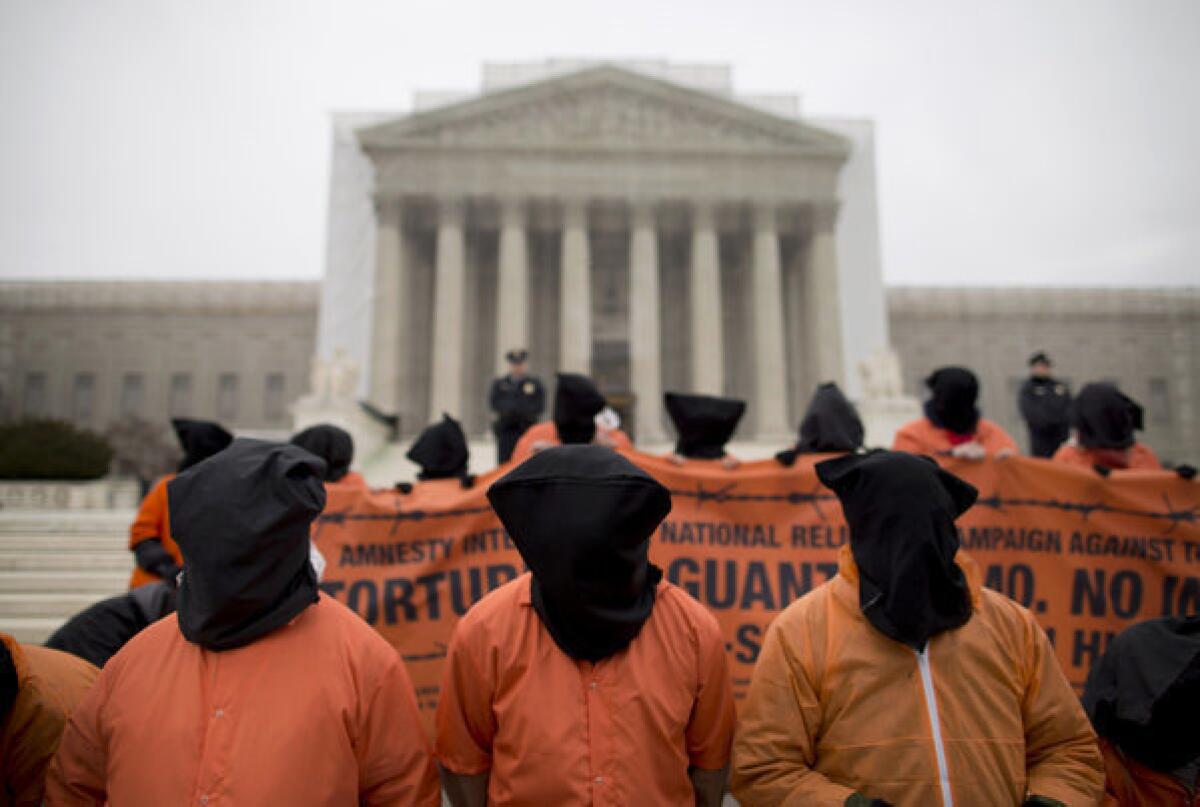Ban on demonstrations outside Supreme Court struck down

WASHINGTON — The Supreme Court’s opinions protecting the right to free speech and public protest came back home Wednesday, prompting a judge to rule protesters have a right to carry signs on the court’s marble plaza.
Since 1949, Congress has made it illegal to demonstrate or to carry banners and signs on the Supreme Court’s grounds, including the marble plaza in front of the court’s main steps. Protesters are free to demonstrate or carry signs on the sidewalk outside the court.
But U.S. District Judge Beryl Howell called the restriction on the plaza “repugnant” to the 1st Amendment and declared it unconstitutional.
Protecting the high court and the free flow of visitors cannot “justify the absolute prohibition on expressive activity on the plaza,” she wrote. “It cannot possibly be consistent with the 1st Amendment for the government to so broadly prohibit expression in virtually any form in front of the courthouse, even the Supreme Court.”
The decision stemmed from a lawsuit brought by a peaceful protester who was arrested two years ago. Harold Hodge, a 46-year old African American, had stood on the plaza wearing a sign that said, “The U.S. Allows Police to Illegally Murder and Brutalize African Americans and Hispanic People.”
A police officer approached Hodge and warned him three times that he was violating the law and must leave the plaza. Hodge refused and was arrested and was charged with violating the ban on demonstrations.
The charge was dropped a few months later when Hodge agreed to stay away from the court building for six months. But with the help of the Rutherford Institute, he filed suit contending the law was unconstitutionally broad.
Howell, an appointee of President Obama, agreed. Her 68-page opinion quoted the high court’s many opinions defending the right to protest and to carry signs. The law, she said, was so broadly written it would make it illegal for a group of tourists to gather on the plaza wearing T-shirts with a message.
Her ruling, however, is not the final one. The government could appeal next to the U.S. Court of Appeals for the District of Columbia. Ultimately, the Supreme Court itself could have the last word.
Follow Politics Now on Twitter and Facebook
More to Read
Get the L.A. Times Politics newsletter
Deeply reported insights into legislation, politics and policy from Sacramento, Washington and beyond. In your inbox three times per week.
You may occasionally receive promotional content from the Los Angeles Times.







